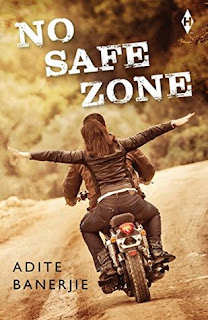Writers often turn to their past for fodder to fuel creative endeavours. Something similar happened with me. I participated in a writing contest announced by Writer's Ezine, an online literary magazine inviting entries for poems for their children's day contest.
I am big fan of the genre and love the way how few words can convey so much. It is with great honour and happiness that I share the news that the entry made its way to the selected list. Here is the link to the website
http://www.writersezine.com/p/childrens-day-contest.html
This is the entry that I am happy to share with you.
Our Last Summer
The child remembers:
The scorching summer holidays, seeking respite
Heading off to the village, for some lovely sights
Get on a train, journey lasting days,
Arrival at granny’s – our knackered, weather beaten face
The country house yearning, thirsting our footfall
The courtyard, mango grove - magical for city kids all.
Walking to squeals of delight, the walls would scream
“welcome”
Start of endless play, with cousins least half a dozen.
Those banyan branches waiting - ready for a sway
Our imaginary horses set for adventures far away.
Clashing with cousins, to decide a game,
When bored of old, make up new, give it a name
The elders busy chatting, talking aloud;
Aunties and uncles, exchanging news - what new what not,
Days fly by, until it was time to go
With our annual sniffling goodbyes in tow,
Promising to be back for more.
A wave of change hits when we come back next
The sun is the same, no warmth in the nest
No squeals of delight, an awkward pause greets us here.
A funny smell permeates the air,
A mix of tension and fear
Hushed whispers of a divide we hear,
Cracks in binds start to appear,
Brimming with nonchalance, we just carry on,
The banyan tree feels threatened when we are gone
With no one to play under it,
Unloved, it will cease to exist.
The family haven, we hear, after we depart
Is to make way for flats – state of the art.
The banyan tree, the source of our rustic delight
Will be the first to go – chopped outright.
This time when we leave, there is no coming back
Packing up memories forever, tight in our bags.
Now an adult, as though folklore,
I narrate those days of fun, frolic, furthermore
To my kids, a chance visit, where the house of memories
stood,
For a glimpse into my stories that, here, grew its roots
The house is gone but the banyan is intact
The flats have altered the place, no question that
Like a torrent, flashing images come to fore
Unleashing nostalgia bottled in mind’s store
Kindred spirits found there, kids shoot off to play,
Reminiscent of my childhood, without any delay
A bystander, I watch them score
Under the same banyan tree, as we did before
Transfixed I am, rooted to the spot
The other children look familiar, but I place them not,
Soon it strikes me, it’s a cousin’s face I see
And turn around, look at him walking towards me,
Recognising, reacting with that familial camaraderie
There is no talk, just a tight wordless hug,
That says a lot more than million words said,
To pry open the lid, sealed tight with years
Of conflict, clashes and many a tear
Now loosened, chastened
That bitter wall, comes crashing apart
And we become those kids again, pure at heart.























